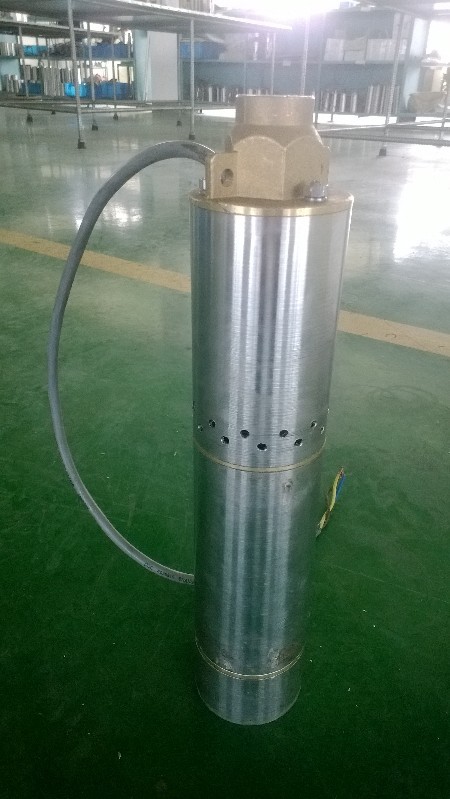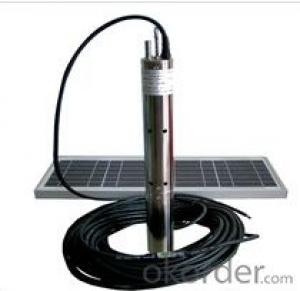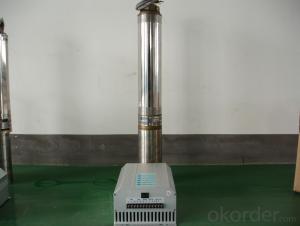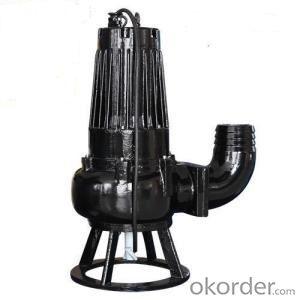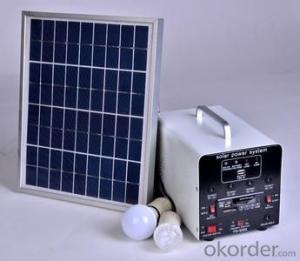Portable Solar Water Screw Pump
- Loading Port:
- Shanghai
- Payment Terms:
- TT OR LC
- Min Order Qty:
- -
- Supply Capability:
- 300 set/month
OKorder Service Pledge
Quality Product, Order Online Tracking, Timely Delivery
OKorder Financial Service
Credit Rating, Credit Services, Credit Purchasing
You Might Also Like
how is the rotor made:
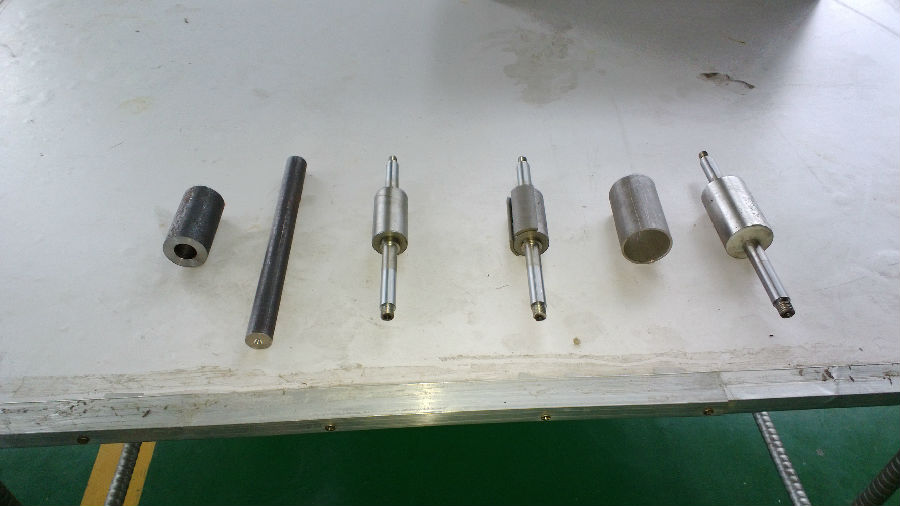
how is the motor made:
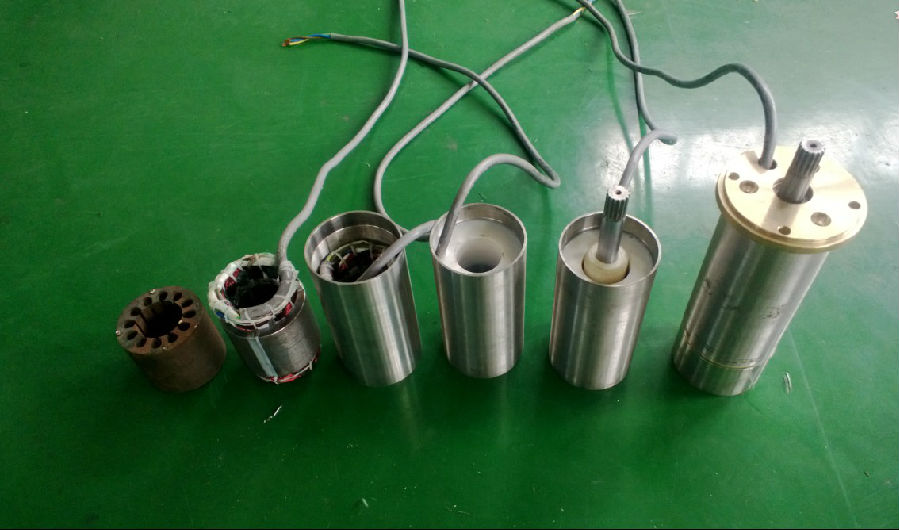
the pump :
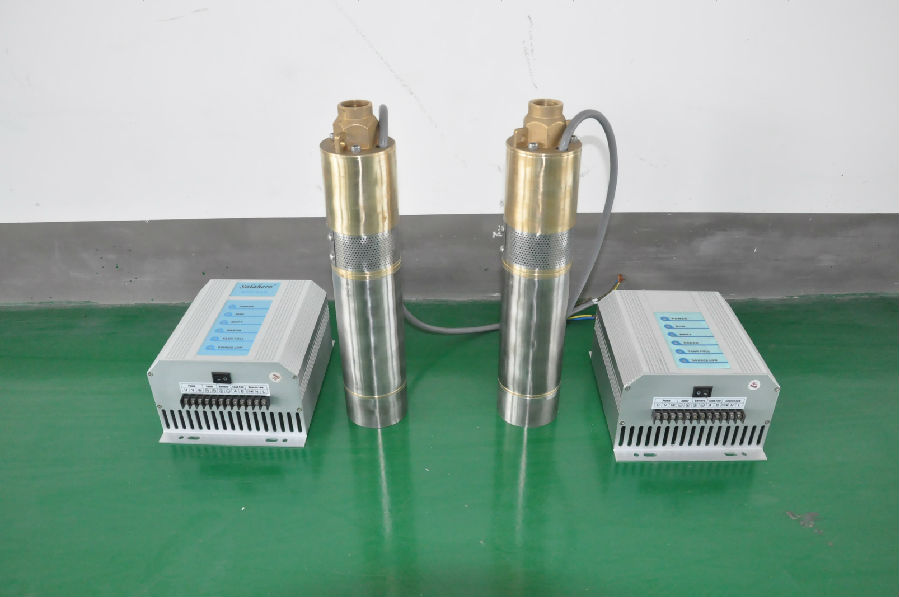
controller terminal connection:
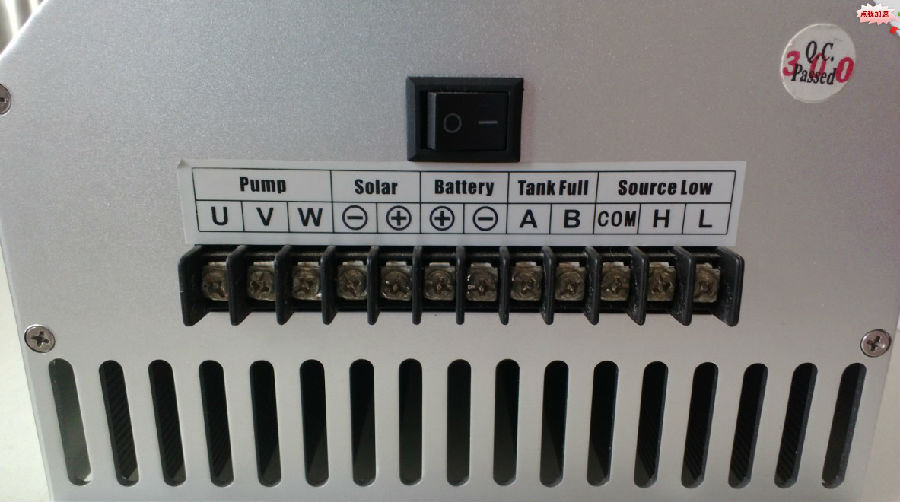
The permanent magnet:

the helical screw:
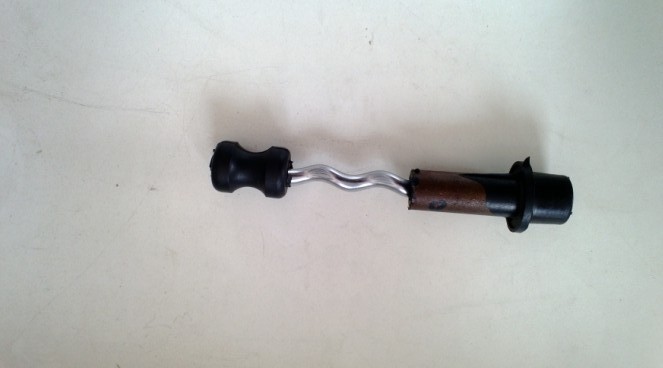
controller box:
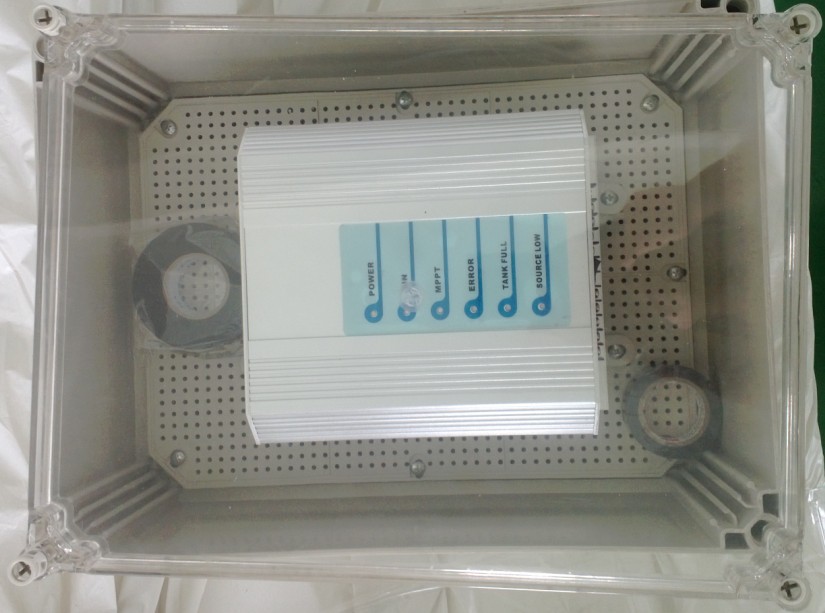
the senors:
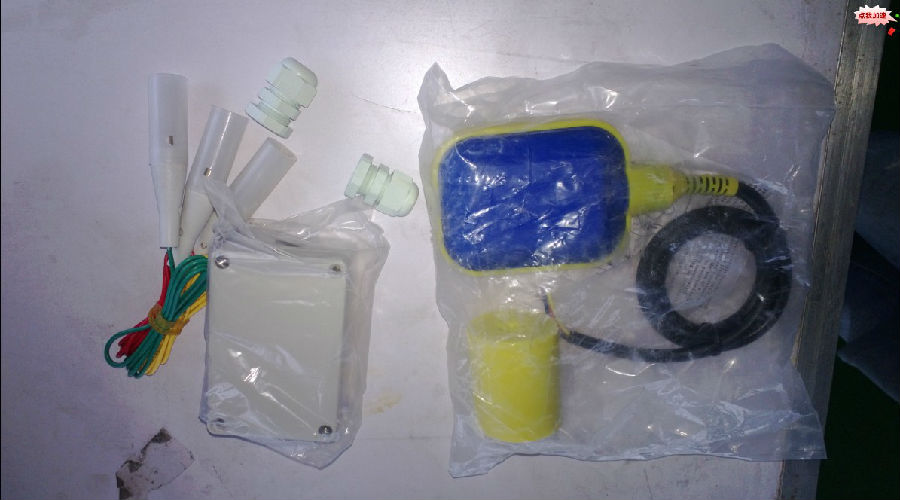
the test:
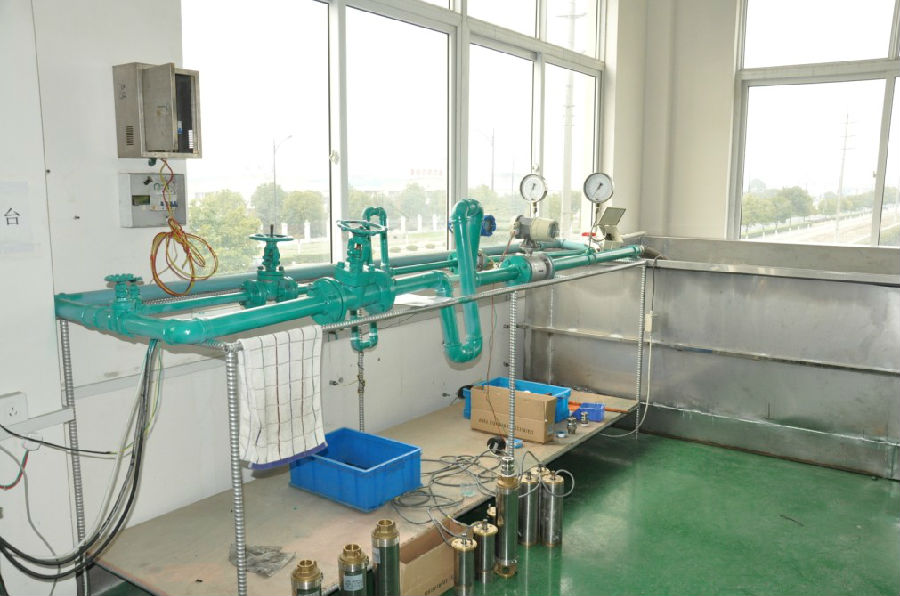
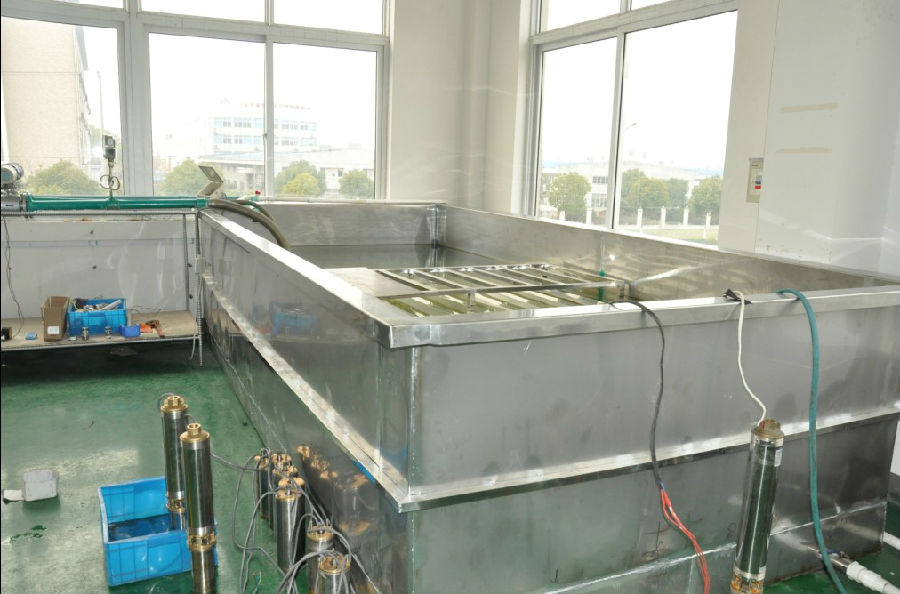
the application:
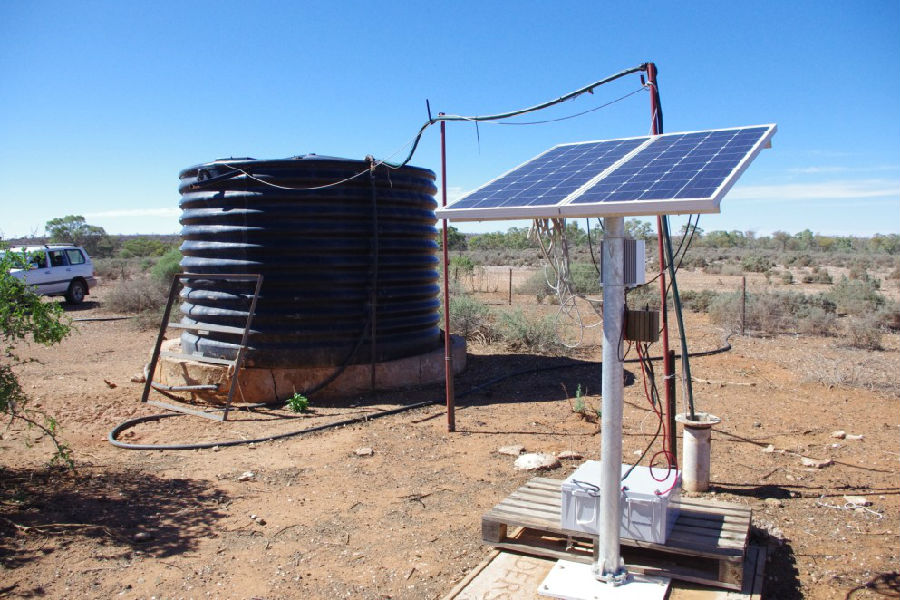
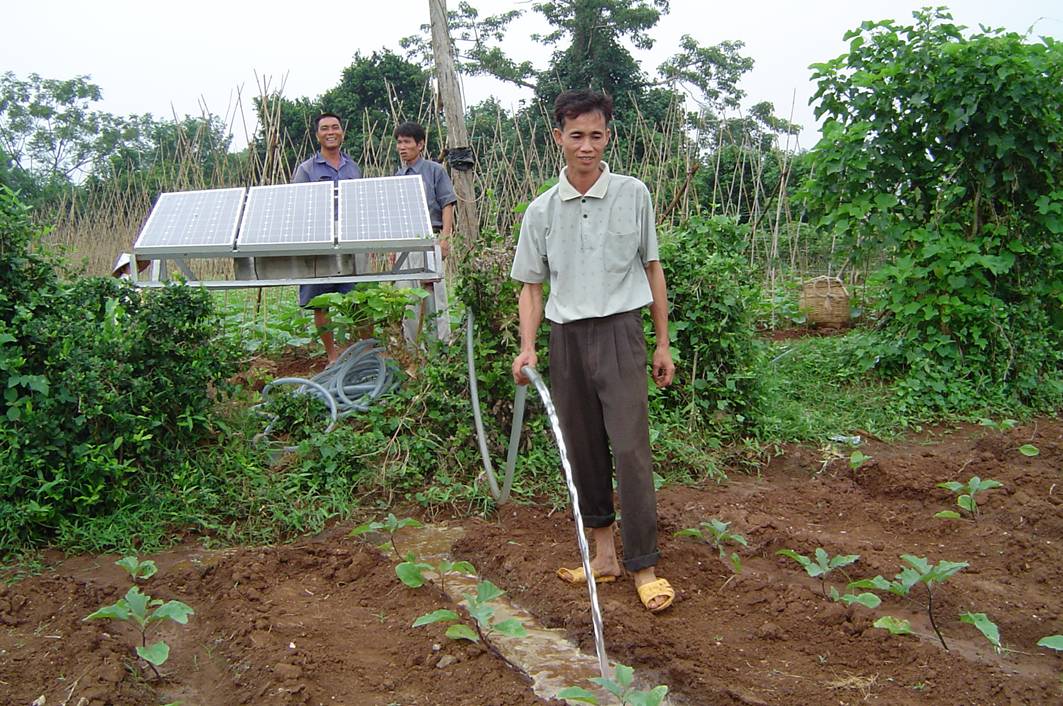
the package:
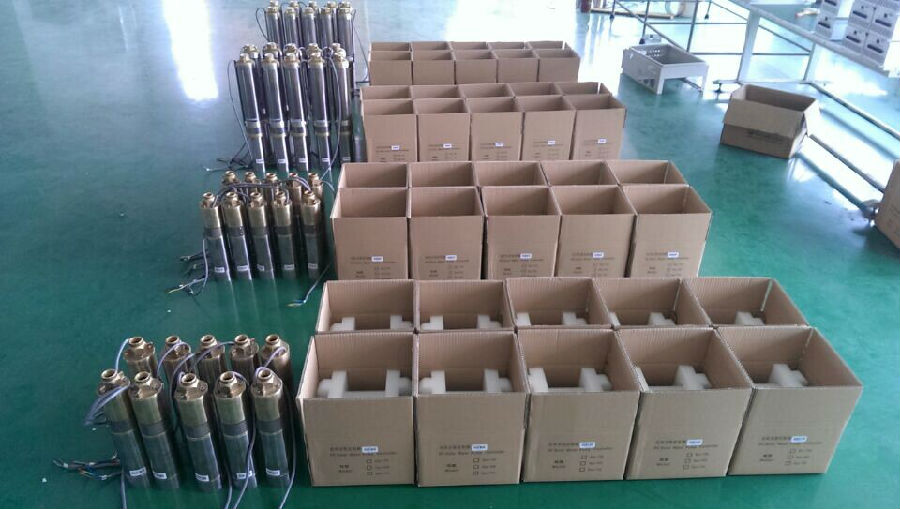
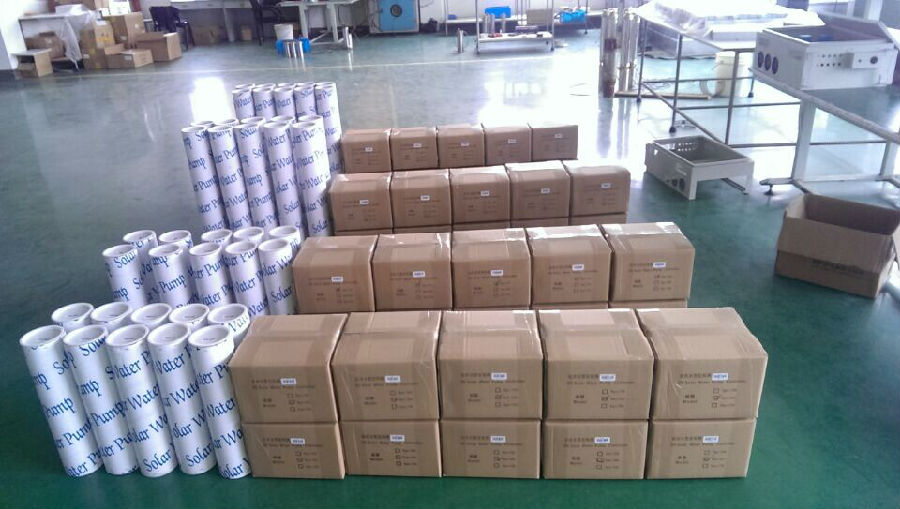
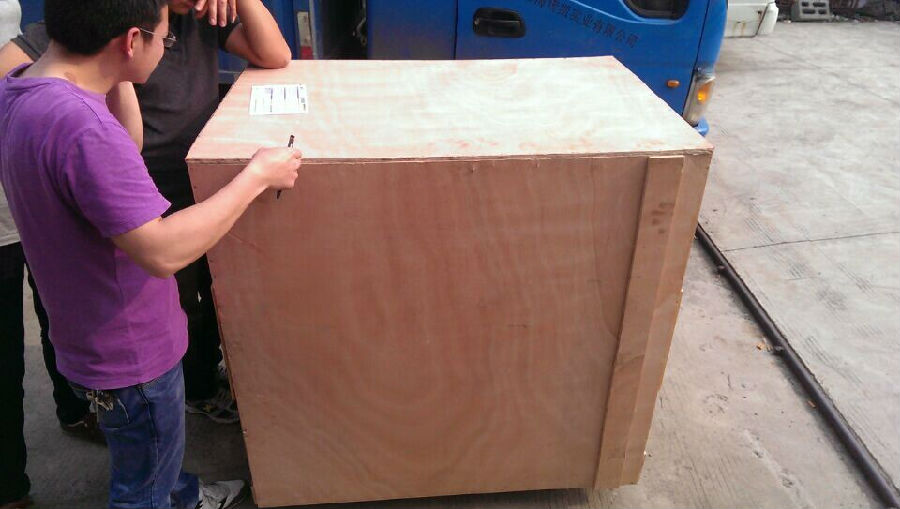
- Q: Can solar pumps be used for water supply in wildlife reserves or conservation areas?
- Yes, solar pumps can be used for water supply in wildlife reserves or conservation areas. Solar pumps provide a sustainable and environmentally friendly solution for pumping water, allowing for reliable water supply without the need for grid electricity or fuel. This is particularly beneficial in remote or off-grid areas where wildlife reserves and conservation areas are often located. Moreover, solar pumps can help maintain natural water sources and support the preservation of wildlife habitats.
- Q: How does a solar pump handle water quality monitoring?
- A solar pump typically does not handle water quality monitoring directly. However, additional devices or sensors can be integrated into the system to monitor water quality parameters such as pH levels, turbidity, chemical concentrations, or bacterial presence. These devices can be connected to the solar pump system and provide real-time data on water quality, allowing users to monitor and maintain the desired water quality standards.
- Q: Can a solar pump be used in areas with limited water sources?
- Yes, a solar pump can be used in areas with limited water sources. Solar pumps are designed to operate with minimal access to electricity and are often used in remote areas where traditional power sources are unavailable. By harnessing solar energy, these pumps can draw water from underground sources such as wells, boreholes, or other limited water sources, providing a sustainable and reliable water supply solution.
- Q: What is the expected lifespan of the inverter in a solar pump system?
- The lifespan of an inverter in a solar pump system can vary based on several factors. On average, a well-maintained solar pump system with a high-quality inverter can endure for approximately 10 to 15 years. However, it's crucial to acknowledge that the inverter's lifespan can be influenced by various factors, including the brand and quality of the inverter, the overall system design, the environmental conditions in which the system operates, and the level of maintenance and care provided to the system. To significantly prolong the inverter's lifespan, it is advisable to employ a reputable and dependable brand of inverter, ensure proper installation, and perform regular maintenance routines. Moreover, the operating conditions, such as temperature and humidity, can also impact how long the inverter lasts. Conducting regular inspections, cleaning, and ensuring adequate ventilation around the inverter can help prevent overheating and extend its lifespan. Additionally, it is recommended to monitor the system for any indications of damage or malfunctions and promptly address them to avoid further complications. While a general expectation for the inverter's lifespan in a solar pump system is 10 to 15 years, it is crucial to consult the manufacturer's specifications and recommendations specific to the model and brand of the inverter in use.
- Q: Can a solar pump be used for water supply in off-grid wildlife conservation areas?
- Yes, a solar pump can definitely be used for water supply in off-grid wildlife conservation areas. Solar pumps are a great alternative for remote and off-grid locations where access to electricity is limited or non-existent. These areas often lack infrastructure and rely on natural resources for water supply. Solar pumps, powered by sunlight, can efficiently extract water from wells, boreholes, or other water sources, and then distribute it to the required areas. The use of solar pumps in wildlife conservation areas has several advantages. Firstly, it is a sustainable and environmentally friendly solution. Solar energy is abundant and renewable, thus reducing the dependency on fossil fuels and minimizing the carbon footprint. This is crucial for wildlife conservation efforts as it helps to preserve the natural habitat and reduce human impact on the environment. Secondly, solar pumps are highly reliable and cost-effective in the long run. Once installed, they require minimal maintenance and have a lifespan of several years. Additionally, they can operate even in remote locations without access to the electricity grid, eliminating the need for expensive power infrastructure or fuel transportation. Moreover, solar pumps can be customized to meet the specific water requirements of wildlife conservation areas. They can be designed to provide a consistent water supply for drinking, irrigation, or any other water-dependent activities necessary for the preservation of wildlife and their habitats. In summary, solar pumps are a suitable and efficient option for supplying water in off-grid wildlife conservation areas. They offer a sustainable, reliable, and cost-effective solution while minimizing the environmental impact. By utilizing solar energy, these pumps contribute to the overall conservation efforts by ensuring a stable water supply for wildlife and preserving their natural habitat.
- Q: Can a solar pump be used for water supply in off-grid green buildings?
- Yes, a solar pump can definitely be used for water supply in off-grid green buildings. Solar pumps are an excellent alternative to conventional pumps that rely on electricity from the grid. They are powered by solar energy, making them highly sustainable and environmentally friendly. Solar pumps operate by converting sunlight into electricity, which powers the pump to draw water from a well, borehole, or any other water source. This means that they can be used in remote areas where access to electricity is limited or non-existent. Off-grid green buildings, which aim to minimize their carbon footprint and reduce reliance on non-renewable energy sources, can greatly benefit from solar pumps. By utilizing the abundant and free solar energy, these pumps provide a reliable and cost-effective solution for water supply. Solar pumps also have several advantages over traditional pumps. They require minimal maintenance, have a long lifespan, and do not produce any greenhouse gas emissions during operation. Additionally, they can be easily integrated into the existing infrastructure of green buildings, making them a practical choice for off-grid water supply. In conclusion, a solar pump is a highly suitable solution for water supply in off-grid green buildings. It aligns perfectly with the sustainable and eco-friendly principles of such buildings, offering a reliable and efficient method for accessing water without relying on the grid or non-renewable energy sources.
- Q: Can a solar pump be used for wastewater treatment?
- Yes, a solar pump can be used for wastewater treatment. Solar pumps are efficient and sustainable solutions for pumping and circulating water in various applications. They can be used to transport wastewater to treatment facilities, aerate and mix wastewater in treatment ponds, and distribute treated water for irrigation or other purposes. Solar-powered systems offer the advantage of reducing the reliance on fossil fuels and operating costs, making them a viable option for wastewater treatment.
- Q: Can solar pumps be used for water supply in remote research or scientific stations?
- Yes, solar pumps can be used for water supply in remote research or scientific stations. Solar pumps are an ideal solution for such locations as they rely on renewable energy from the sun, eliminating the need for fuel or electricity supply. They can efficiently extract and supply water from various sources such as wells, rivers, or lakes, providing a reliable and sustainable water supply for remote stations without relying on traditional power infrastructure. Additionally, solar pumps require minimal maintenance, making them a cost-effective and practical solution for water supply in remote locations.
- Q: How does the depth of the water table affect the performance of a solar pump?
- The depth of the water table directly affects the performance of a solar pump. A higher water table means that the pump has to lift water from a shallower depth, resulting in less energy consumption and higher efficiency. On the other hand, a deeper water table requires the pump to work harder, consuming more energy and potentially reducing its performance. Therefore, the depth of the water table is a crucial factor in determining the overall effectiveness and efficiency of a solar pump.
- Q: How does a solar pump handle water quality issues?
- A solar pump does not directly handle water quality issues. However, it can indirectly contribute to improving water quality by providing a reliable source of clean water. By pumping water from a well or other water source, a solar pump helps reduce the reliance on contaminated surface water, which may contain pollutants or pathogens. Therefore, while the solar pump itself does not address water quality issues, it plays a crucial role in accessing and utilizing cleaner water sources.
Send your message to us
Portable Solar Water Screw Pump
- Loading Port:
- Shanghai
- Payment Terms:
- TT OR LC
- Min Order Qty:
- -
- Supply Capability:
- 300 set/month
OKorder Service Pledge
Quality Product, Order Online Tracking, Timely Delivery
OKorder Financial Service
Credit Rating, Credit Services, Credit Purchasing
Similar products
Hot products
Hot Searches
Related keywords

